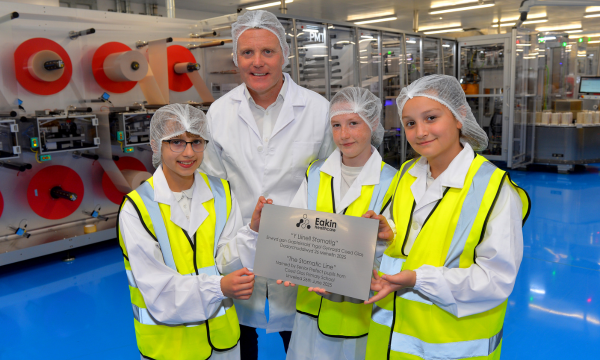People in Wales want businesses to play a greater part in improving the prospects for social mobility in the region, new PwC research has found.
Driving Social Mobility found that six in 10 people say the pandemic has made social mobility more difficult, with 62% in Wales – the largest percentage of anywhere in the UK – agreeing that those from lower socio-economic backgrounds have been further disadvantaged.
As the Government plans a post-pandemic catch-up to ensure those from the most deprived backgrounds and future generations are not further disadvantaged, the research reveals how people in Wales are looking to employers for help.
Three quarters of respondents are looking for businesses to support upskilling (73%), provide work experience placements and non-graduate routes into employment (72%), and mentoring opportunities (66%) – all of which play an important role in social mobility.
Three-quarters want business to work closely with schools and education providers to raise awareness of career opportunities. Even more than that (76%) think the Government should work with local businesses to offer more hands-on experience as part of the education catch-up process, while 72% want businesses to support social mobility within disadvantaged communities in the areas where they operate.
How PwC is helping
PwC is already leading the way in this space with a number of initiatives to support social mobility.
Since last autumn, just under 2,000 students from nine Welsh secondary schools signed up for classes, which feature weekly videos delivered by PwC staff. The focus is on practical and tangible learning, looking at setting goals, teamwork, leadership, creative problem solving, speaking and listening, and staying positive.
Of the last graduate and school leaver intake into its Cardiff office, 86% were from a non-selective state school, where 9% received free school meals. The professional services firm also no longer uses the UCAS tariff as an assessment tool for the majority of its undergraduate and graduate opportunities, ensuring students are selected on their own merit, irrespective of their background or where they are from.
In terms of widening the talent pool, PwC’s recruitment considers the backgrounds of applicants, and its Cardiff office has recruited four students who meet the social mobility criteria for paid work experience this summer.
And recently PwC convened a group of influential leaders from the public and private sectors in Wales for a virtual roundtable to discuss how collectively to support the catch-up effort, and ensure young people have the skills they need to secure good jobs and to progress.
John-Paul Barker, PwC’s Regional Market Leader for the West & Wales, commented:
“Quite rightly there is a clear expectation for the Government and businesses to work together to remove barriers and provide greater opportunities to make sure people are getting on based on their potential, and not on their background.
“We have been clear that businesses have a big part to play in addressing a lack of social mobility in Wales. That’s why we have made it a priority for our ‘place and purpose’ work to encompass this challenge.
“We are proud to be the top-ranked UK employer in the Social Mobility Employer Index, but we’re not going to rest on our laurels. We are committed to working with the local and national Governments, alongside academic institutions in our region, to find ways to extend our reach into areas where people need the most help.”
The national picture
Women are more likely to say the pandemic has made social mobility more difficult (65%) compared to men (56%). The public also lacks optimism for the prospects of future generations: while six in ten (59%) people say they have had more opportunities than their parents, only half (52%) believe younger generations will have the same or better opportunities.
Across the generations, there are different views on barriers to social mobility. Those aged over 55 believe skills and education are the biggest barriers. Younger people (18-34 year olds) are more likely to see ethnicity and lack of a support network (27%), gender, disabilities, and the place where people grow up (24%) as the biggest hurdles.
Respondents from ethnic minority backgrounds feel the biggest barriers to people achieving their potential are ethnicity (38%), compared to 23% of the wider population, followed by gender (28%), disability (25%), lack of support network growing up (24%) and area grew up in (23%).
Significantly more men than women felt ethnicity (25% vs 20%), sexual orientation (13% vs 9%), and religious beliefs (11% vs 7%) are stopping people from achieving their full potential. However, more women (31% vs 21%) felt that the lack of support network was the main thing holding people back.
The Rt Hon Alan Milburn, senior advisor at PwC and chair of the Social Mobility Foundation, said:
“This research is a stark warning that the pandemic risks putting social mobility into reverse. While older people have been the principal health victims of Covid, without action the younger generation will be the biggest economic and social losers from it.
“COVID-19 has not only exposed the fragility of our care system. It has also exposed the fragility of our society. Urgent action is needed to put jobs, education and skills for young people at the heart of the Government’s levelling up agenda.
“But this is too big a job for Whitehall or the Senedd alone. The public wants businesses to more actively step up to the plate to create new opportunities for people to progress in life. A new UK-wide mission is needed to address deep inequalities in society.”







